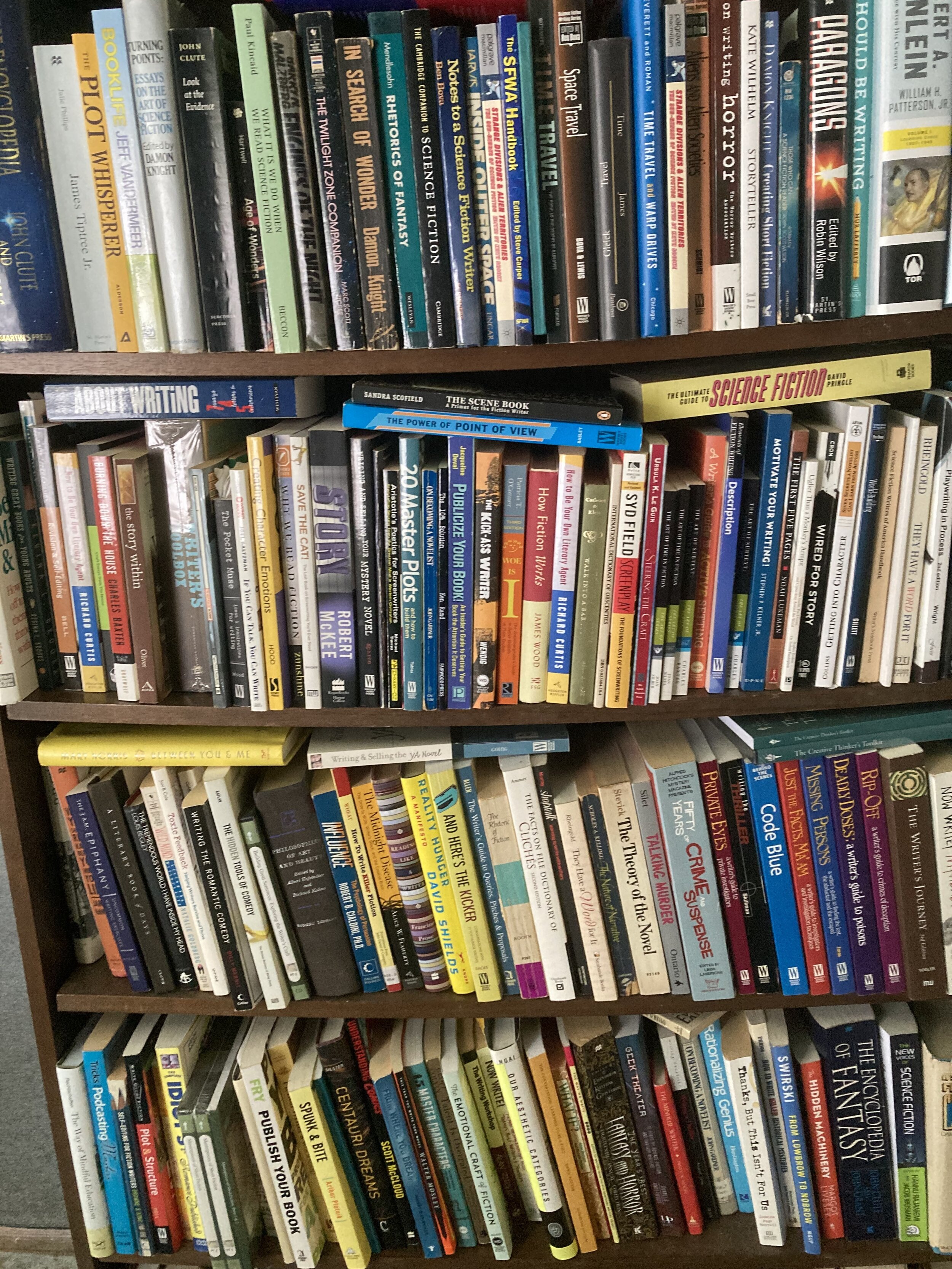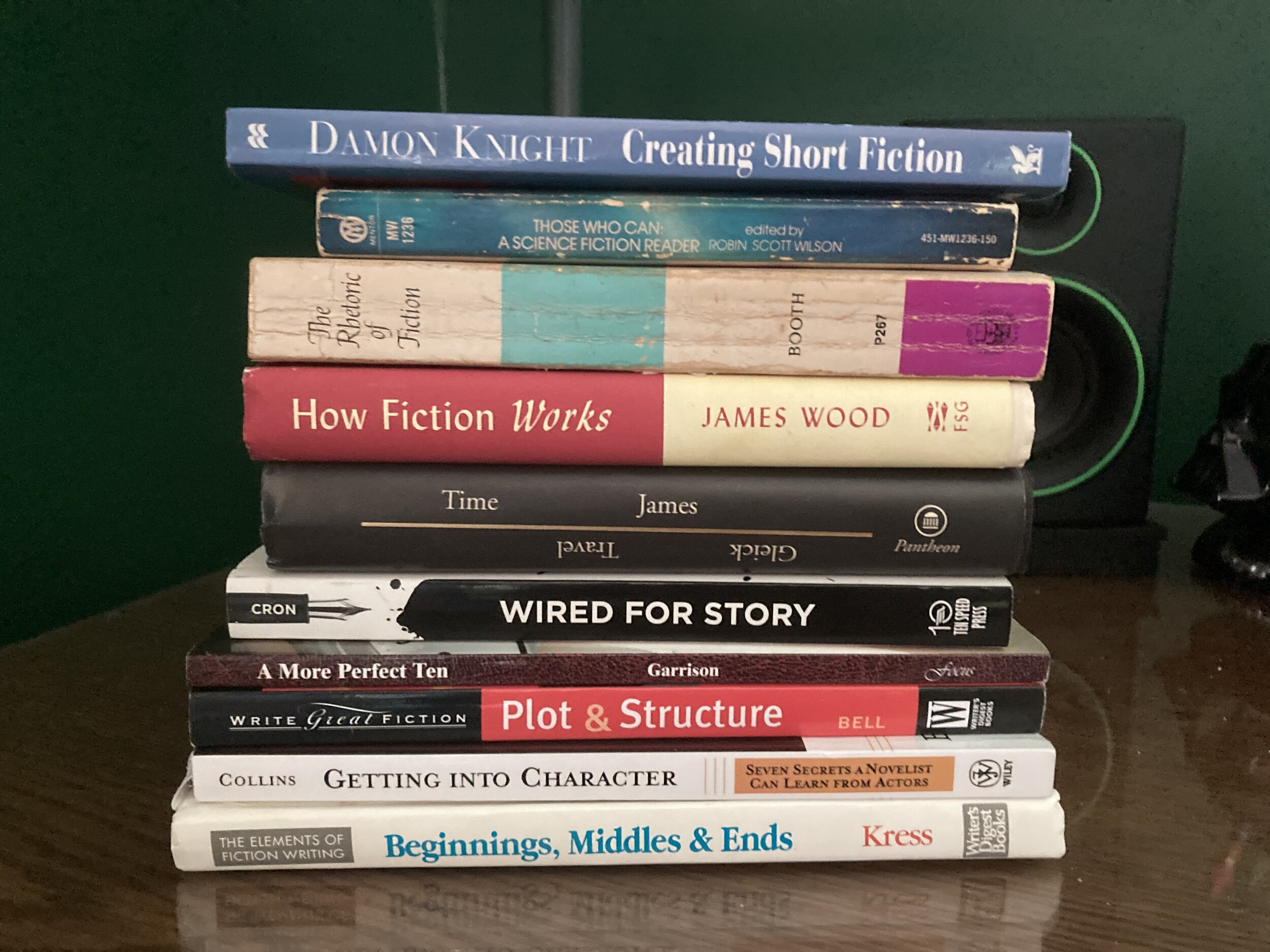I posted this on Facebook and got a lot of response so I thought I’d drag both the original post and the follow up over here.
Here's a secret I rarely share. Some people collect stamps, some amass angels and some are into barbed wire. Me, I collect books on how to write. Here's a shot of my library shelves and here are two of my latest acquisitions, hot off the presses. The Saunders is part killer craft book and part smartest workshop critique ever. The Pocket Workshop is a collection of wise and practical essays by colleagues and friends for the benefit of Clarion West, edited by Tod McCoy and M. Huw Evans. My contribution is called "The Three Laws of Great Endings and My Two Shameless Hacks."
Lots of response to my post above about my craft book collection and because many … well, some … er .. two or three … of my Friends asked, I’m going to list ten which I have found useful. But this is a difficult list to compile because I’ve at least skimmed all of them and have consulted many more than ten many times. For example: Writer’s Digest Books offers a series of books in its mystery Howdunit series schooling would-be writers on the intricacies of guns, poisons, PIs, ERs, missing persons and the like. All have been of use at various times. Similarly, the late Ben Bova edited the Science Fiction Writing Series, also for Writer’s Digest, which provided expert help for writers on space travel, time travel, worldbuilding and aliens and their civilizations. Different projects want different craft books.
Also, I have kind of a quirky notion of what can be a craft book. For example, in the Bova series, there a writer’s guide called Time Travel by Paul J. Nahin, which was once my go-to choice. Years later, James Gleick published the marvelous Time Travel, A History, which was intended for a general audience but which I found indispensable for a working writer interested in chronological adventure. When I mentioned to my friend Ted Chiang that I considered this a craft book, he pointed out that this was not the author’s intention, and he was right. But as the cyberpunks say, the street finds its own uses for things, and I have the Gleick shelved next to the Nahin on my craft shelves, as opposed to being on my science shelves or literary criticism shelves. Others may make the same objections to some of the others on my list of ten. I understand why.
In any event, here it is:
Beginnings, Middles and Ends by Nancy Kress (a great general guide)
Creating Short Fiction by Damon Knight (another great general guide by my mentor)
Plot and Structure by James Scott Bell (prescriptive but practical)
The Rhetoric of Fiction by Wayne C. Booth (read this in college)
Those Who Can edited by Robin Scott Wilson (read this before attending Clarion)
Getting Into Character by Brandilyn Collins (method acting tools for writers)
A More Perfect 10 by Gary Garrison (ten minute play masterclass)
Time Travel by James C. Gleick (see above)
Wired for Story (brain science tools for writers)
How Fiction Works by James Wood (Wood is all too often wrong but he’s great on free indirect discourse)



